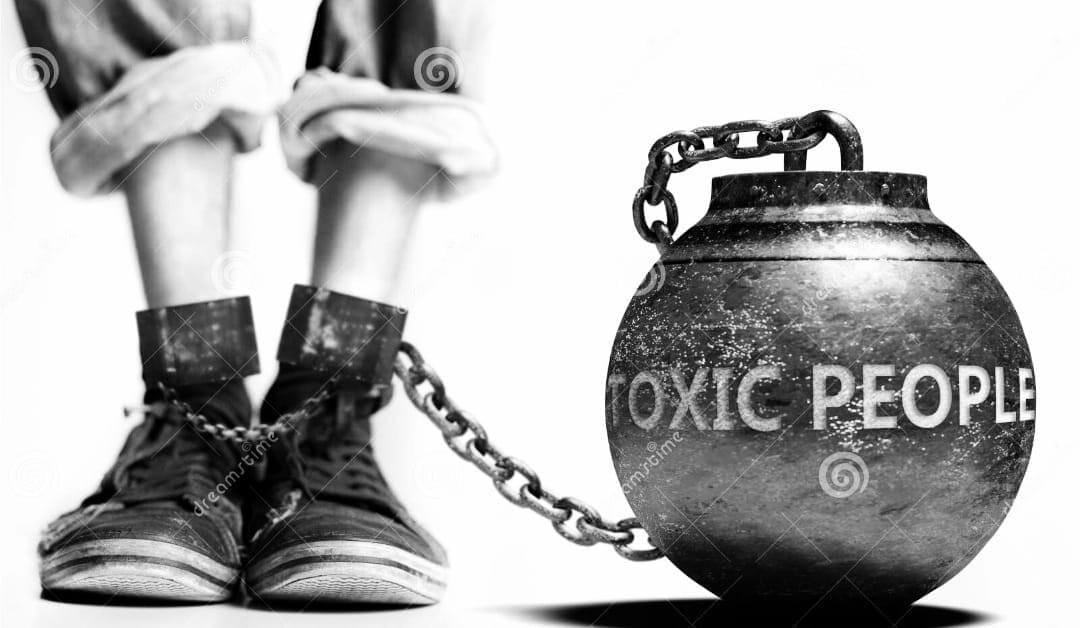
Toxicity. It’s a word we throw around casually these days, yet its impact on our lives is anything but casual. Toxicity can seep into our relationships, our homes, our workplaces, and even our own minds.
It drains us, reshapes our perceptions, and, if left unchecked, can destroy the very essence of who we are. Yet, so many of us remain entangled in it—trapped by familiarity, fear, or hope that things will somehow change.
This blog is a heartfelt exploration of what toxicity really looks like, how it manifests in different areas of our lives, and what we can do to break the cycle and raise a healthier generation.
Let’s start with the elephant in the room: those who complain about being in toxic relationships but choose to stay. It’s easy to judge, to ask, “Why don’t they just leave?” But the truth is, toxicity is insidious. It doesn’t announce itself with a flashing neon sign. It often begins subtly—a hurtful comment brushed off as a joke, an outburst of anger rationalized as stress, a betrayal forgiven in the name of love.
Over time, these moments pile up, eroding self-worth and creating a cycle of dependency and doubt. People stay in toxic relationships for many reasons: fear of loneliness, financial constraints, societal pressure, or the belief that things will get better. But here’s the harsh reality: toxicity rarely resolves itself. It feeds on complacency, grows stronger in silence, and thrives in environments where accountability is absent. Leaving a toxic relationship is not just an act of courage; it’s a declaration of self-worth.
Toxicity doesn’t stay contained within the confines of a relationship. It spills into every aspect of life. A toxic home can create a ripple effect that reaches schools, workplaces, and communities. Toxic workplaces breed burnout, stifle creativity, and foster resentment. Toxic friendships masquerade as loyalty but leave us feeling drained and unworthy. And let’s not forget the most damaging form of toxicity: the one we direct at ourselves.
Negative self-talk, self-sabotage, and internalized shame are all symptoms of a toxic inner dialogue that can be just as harmful as external influences. When we allow toxicity to fester in our lives, we risk perpetuating a cycle that becomes harder to break with each passing day.
Toxicity comes in many forms, but some red flags include manipulation and control, constant negativity, lack of accountability, disrespect and dismissiveness, gaslighting, and emotional exhaustion. These behaviors are not always easy to spot, especially when they are normalized over time. Recognizing these signs is the first step to breaking free from their grip and reclaiming our mental and emotional well-being.
Toxicity is not gender-specific. Toxic men often manifest as domineering, emotionally unavailable, or dismissive. Toxic women, on the other hand, might exhibit manipulative behaviors, passive-aggressiveness, or emotional blackmail. But labeling individuals as “toxic” isn’t the solution.
The real issue lies in the societal norms and cultural patterns that perpetuate toxic behaviors. Men are often taught to suppress their emotions, equating vulnerability with weakness. Women, on the other hand, are socialized to prioritize relationships over their own well-being, often tolerating mistreatment to avoid being labeled “selfish.” Both these narratives are toxic, and both need to change if we are to build a healthier society.
The responsibility of breaking the cycle of toxicity lies with us. Teaching emotional intelligence is a good start. Encouraging children to identify, express, and regulate their emotions shows them that it’s okay to feel and talk about their feelings. Modeling healthy relationships is crucial, as children learn by watching. Showing them what respect, communication, and compromise look like in your own relationships can leave a lasting impact.
Setting boundaries teaches children that it’s okay to say no and that their worth is not tied to how much they please others. Encouraging accountability helps them understand that mistakes are opportunities to learn and grow, not reasons for shame or blame. Promoting diversity and inclusion exposes children to different cultures, perspectives, and ways of life to foster empathy and understanding.
We live in a world that desperately needs more compassion, more understanding, and more healing. Breaking free from toxicity is not just a personal journey; it’s a societal imperative. By recognizing and addressing toxicity in our own lives, we can create ripples of change that extend far beyond ourselves.
Let’s commit to building a healthier, more loving world—for ourselves, for each other, and for the generations to come.
Remember, you have the power to walk away from toxicity, to demand better, and to inspire others to do the same.
Let’s break the cycle and build a society where kindness and respect are the norms, not the exceptions.

